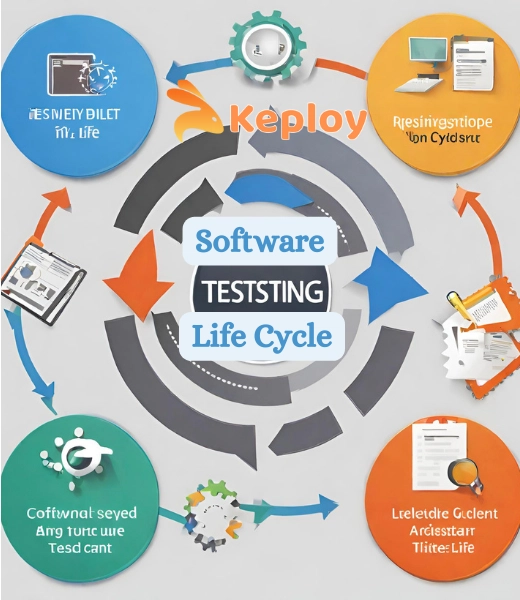How AI Agents Are Helping Businesses Identify New Market Opportunities and Optimize Strategies
Artificial intelligence agents have become vital tools for businesses seeking to identify untapped market opportunities and refine their strategies. These tools analyze vast amounts of data, detect trends, and uncover insights that guide businesses toward informed decisions. By leveraging AI agents, companies can stay ahead in competitive markets and adapt to changing customer demands. How AI Agents Identify New Market Opportunities Analyzing Market Trends AI agents process data from various sources, such as social media, customer feedback, and sales records. They identify patterns and trends that highlight emerging market opportunities. For example, an AI agent can detect an increase in demand for eco-friendly products, prompting a business to expand its sustainable offerings. Monitoring Competitor Activities AI agents track competitors by analyzing pricing, product launches, and marketing strategies. This information helps businesses identify gaps in the market. For instance, if competitors lack a specific product or service, a business can capitalize on this opportunity to fill the void. Understanding Customer Preferences AI agents gather insights into customer behavior by analyzing purchase histories, online interactions, and feedback. These tools identify customer needs and preferences, enabling businesses to create targeted products or services. For example, an AI agent might reveal a growing interest in personalized experiences, encouraging a company to offer customization options. Exploring Geographic Opportunities AI agents analyze regional data to identify untapped geographic markets. For instance, a retail business can use AI tools to pinpoint areas with high demand for their products but low competition. This insight allows businesses to expand strategically and capture new customer bases. Optimizing Business Strategies with AI Agents Enhancing Marketing Campaigns AI agents optimize marketing efforts by analyzing campaign performance and audience engagement. These tools recommend strategies to improve ROI. For example, an AI agent can suggest the best time to launch a campaign based on audience behavior patterns. Improving Product Development AI agents guide product development by analyzing customer feedback and identifying trends. For instance, an AI tool can highlight features customers value most, helping businesses prioritize those in new product designs. This approach ensures products align with customer expectations. Optimizing Pricing Strategies AI agents analyze competitor pricing, market demand, and customer behavior to recommend optimal pricing strategies. Businesses can use this information to set competitive prices, attract more customers, and maximize revenue. For example, a company can adjust pricing during peak seasons to boost profits. Supporting Risk Management AI agents assess potential risks by analyzing market conditions and internal data. For instance, a financial services company can use AI tools to identify economic trends that may impact investments. This proactive approach minimizes risks and protects business interests. Real-Life Applications of AI in Market Opportunities Retail Industry A fashion retailer used AI agents to analyze customer preferences and market trends. The tools identified a growing demand for sustainable clothing. The retailer launched an eco-friendly product line, attracting new customers and increasing sales. Hospitality Sector A hotel chain implemented AI agents to monitor customer reviews and competitor activities. The system identified opportunities to improve guest experiences, such as offering personalized travel packages. These changes enhanced customer satisfaction and loyalty. The Role of AI Data Management Effective use of AI agents requires reliable data. Businesses achieve this with ai agents use cases designed to manage and analyze information efficiently. These systems ensure businesses have the insights they need to act strategically. Conclusion AI agents empower businesses to identify new market opportunities and optimize strategies. By analyzing trends, monitoring competitors, and understanding customer preferences, these tools guide companies toward smarter decisions. Businesses that leverage AI agents gain a competitive edge, enabling them to grow and innovate in dynamic markets.

Artificial intelligence agents have become vital tools for businesses seeking to identify untapped market opportunities and refine their strategies. These tools analyze vast amounts of data, detect trends, and uncover insights that guide businesses toward informed decisions. By leveraging AI agents, companies can stay ahead in competitive markets and adapt to changing customer demands.
How AI Agents Identify New Market Opportunities
Analyzing Market Trends
AI agents process data from various sources, such as social media, customer feedback, and sales records. They identify patterns and trends that highlight emerging market opportunities. For example, an AI agent can detect an increase in demand for eco-friendly products, prompting a business to expand its sustainable offerings.
Monitoring Competitor Activities
AI agents track competitors by analyzing pricing, product launches, and marketing strategies. This information helps businesses identify gaps in the market. For instance, if competitors lack a specific product or service, a business can capitalize on this opportunity to fill the void.
Understanding Customer Preferences
AI agents gather insights into customer behavior by analyzing purchase histories, online interactions, and feedback. These tools identify customer needs and preferences, enabling businesses to create targeted products or services. For example, an AI agent might reveal a growing interest in personalized experiences, encouraging a company to offer customization options.
Exploring Geographic Opportunities
AI agents analyze regional data to identify untapped geographic markets. For instance, a retail business can use AI tools to pinpoint areas with high demand for their products but low competition. This insight allows businesses to expand strategically and capture new customer bases.
Optimizing Business Strategies with AI Agents
Enhancing Marketing Campaigns
AI agents optimize marketing efforts by analyzing campaign performance and audience engagement. These tools recommend strategies to improve ROI. For example, an AI agent can suggest the best time to launch a campaign based on audience behavior patterns.
Improving Product Development
AI agents guide product development by analyzing customer feedback and identifying trends. For instance, an AI tool can highlight features customers value most, helping businesses prioritize those in new product designs. This approach ensures products align with customer expectations.
Optimizing Pricing Strategies
AI agents analyze competitor pricing, market demand, and customer behavior to recommend optimal pricing strategies. Businesses can use this information to set competitive prices, attract more customers, and maximize revenue. For example, a company can adjust pricing during peak seasons to boost profits.
Supporting Risk Management
AI agents assess potential risks by analyzing market conditions and internal data. For instance, a financial services company can use AI tools to identify economic trends that may impact investments. This proactive approach minimizes risks and protects business interests.
Real-Life Applications of AI in Market Opportunities
Retail Industry
A fashion retailer used AI agents to analyze customer preferences and market trends. The tools identified a growing demand for sustainable clothing. The retailer launched an eco-friendly product line, attracting new customers and increasing sales.
Hospitality Sector
A hotel chain implemented AI agents to monitor customer reviews and competitor activities. The system identified opportunities to improve guest experiences, such as offering personalized travel packages. These changes enhanced customer satisfaction and loyalty.
The Role of AI Data Management
Effective use of AI agents requires reliable data. Businesses achieve this with ai agents use cases designed to manage and analyze information efficiently. These systems ensure businesses have the insights they need to act strategically.
Conclusion
AI agents empower businesses to identify new market opportunities and optimize strategies. By analyzing trends, monitoring competitors, and understanding customer preferences, these tools guide companies toward smarter decisions. Businesses that leverage AI agents gain a competitive edge, enabling them to grow and innovate in dynamic markets.
What's Your Reaction?


























